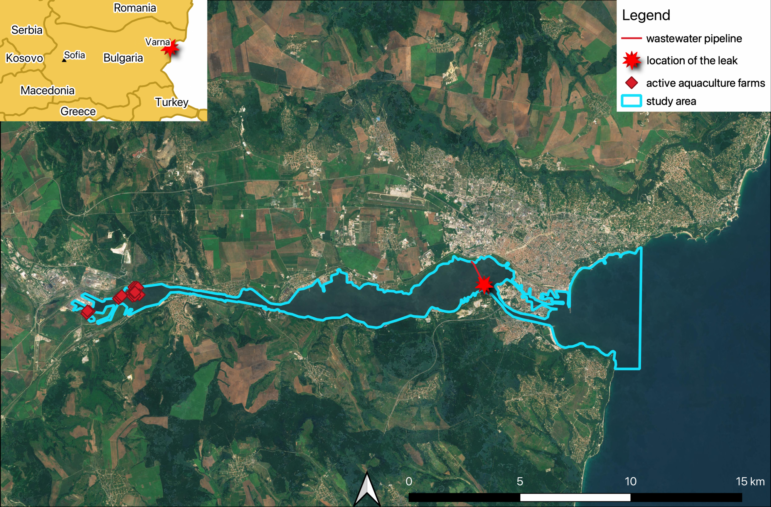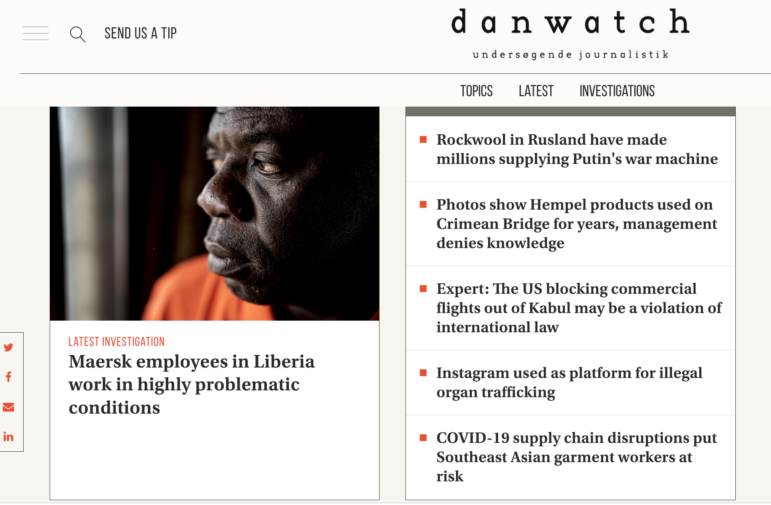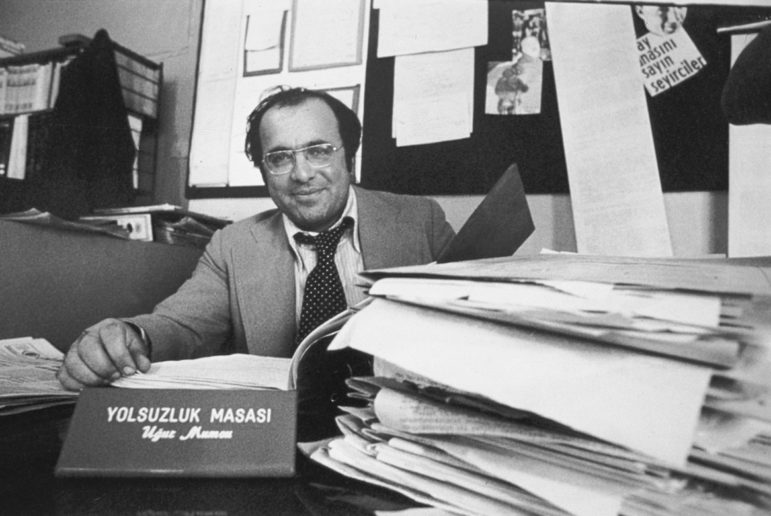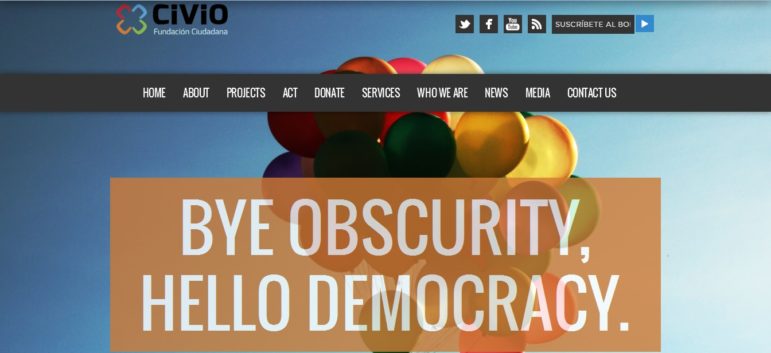

GIJN Member Civio: Fighting for Transparency in Spain
Spanish citizens are now a step closer to understanding how power operates in the country, and how decisions affect them, thanks to the work of organizations like Civio fighting for transparency and access to public data. In October Civio’s work was recognized with the Gabriel Garcia Marquez award in innovative journalism for its Medicamentalia investigation.
Access to public information, accountability and participatory democracy may have been a reality in many countries for some time — but in Spain they sounded like a utopia. Entrepreneur Jacobo Elosua and computer technician David Cabo decided that this had to change.
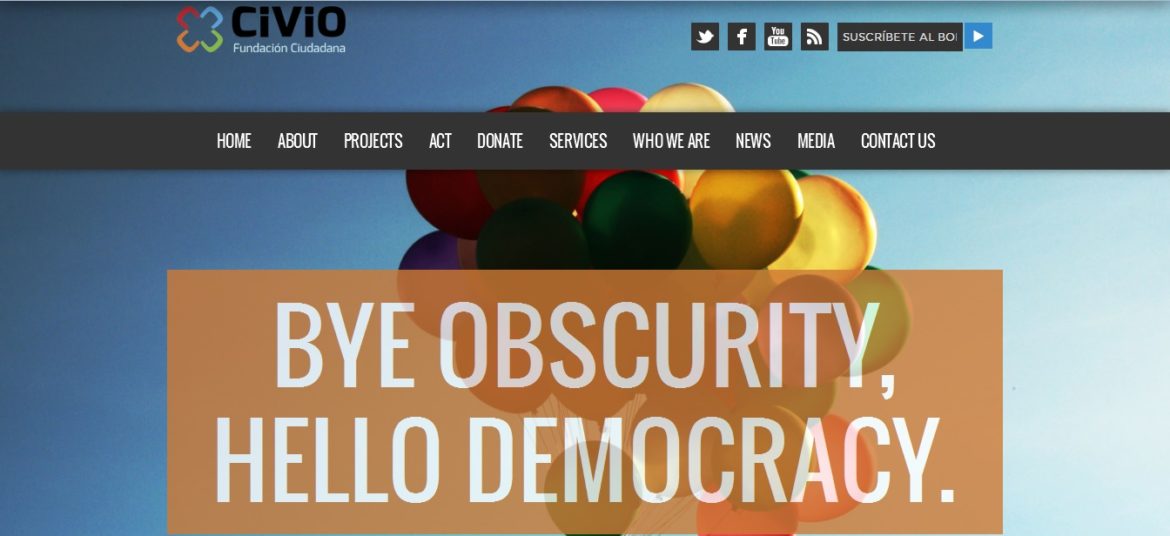 The pair used their savings to build an organization with the intention of serving those active citizens who, like them, believed in transparency: Civio Foundation.
The pair used their savings to build an organization with the intention of serving those active citizens who, like them, believed in transparency: Civio Foundation.
Taking inspiration from organisations like mySociety in the UK, Ciudadano Inteligente in Chile and the Sunlight Foundation in the USA, they began the long process in 2011.
Journalist and specialist in international relationships Javier de la Vega was one of those who later joined the project. “We believe in a society built by active and participative citizens,” he says. “Working to defend transparency and freedom of information in Spain. A strong democratic reliability includes new technologies and journalism, and we understand journalism as a public service able to produce changes.”
The Spanish Information Vacuum
Now, with stronger connections and a team of eight young professionals with journalistic, financial and technical skills, Civio has produced a number of projects around the “Spanish Information vacuum” that have helped contribute to a real change in how government and politicians hide information.
“The Pardonometer, our investigation about how many reprieves have been administrated in Spain since 1996, has had a real impact in the reduction of these concessions,” says Javier.
Another Civio project, Quién Manda (Who’s in charge?), revealed the extensive relationships between politics and businessmen, and reported on the opacity of their meetings. The project generated a surprising response from four Spanish political parties: they decided to publish their full meeting diary.
But in general, as Javier de la Vega explains: “All our big projects have produced some kind of change, even small, or it has exposed problems that needed a public debate.”
And these small changes led to global recognition of their work for their most international project yet: Medicamentalia.
Medicamentalia: An International Data Journalism Collaboration
The investigation was born from the obscurity of the BOE (the Spanish Official Bulletin of the State), where public bodies purchase different medical treatments at different prices.
Civio wanted to know how these expenses were affecting people’s lives.
Their investigation focused on how much 61 countries paid for 14 different medicines. It involved months of hard work with big databases and collaboration with outlets in other countries, such as Correctiv! in Germany, La Nación in Argentina, and Kack Magazine in Belgium.
“Medicamentalia has been our first international leap,” says Javier. “It is the first investigation that has broken borders, and it has given us the chance to collaborate with outstanding journalists from other countries. Recognition has ranged from the Gabriel Garcia Marquez award for innovation or data journalism to the best investigation of the year (for small newsrooms) and being finalists in the European Press Prize.”
Civio’s achievements prove how valuable data and investigative journalism can be for a country like Spain, making information visible that citizens previously had no access to.
To analyze those documents is a harder job than reporting on statements from politicians, but we have to leave this laziness (of stenographic reporting) behind. Nowadays data journalism is available to everyone.
 This post first appeared on the Online Journalism Blog and is cross-posted here with permission.
This post first appeared on the Online Journalism Blog and is cross-posted here with permission.
Nuria Riquelme Palazón is journalist, photographer, activist, and student of online journalism in the MA program at Birmingham City University in the United Kingdom.







